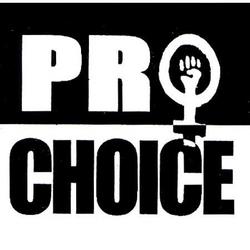What Does It Mean to be Prochoice ?
ASAP’s coordinator, Dr. Suchitra Dalvie is a practicing gynecologist, an abortion care provider and a women’s rights activist. In this article, she explores the meaning of being pro-choice, both in her capacity as an advocate, and as a provider.
As pro-choice advocates, or a safe abortion provider, I am sure I speak for many, many colleagues who rarely have the luxury of time or even a safe space to sit back and reflect on the philosophies and ethics that govern our prochoice movement—how revitalizing an experience that can be ! Often, the fear of losing what we already have, prevents many of us from having more nuanced discussions on the changing meanings of words and often the different meanings regular words have in different contexts. It is also simply a practical truth of our times that for a lot of us this is not a social movement anymore, but a job or a career.
 However, last month, I was fortunate to be at an excellent dialogue forum, where we made time and had a safe and intellectually charged space in which I met with people who have worked for the prochoice movement and supported women’s right to safe abortion rights for decades. We were gathered together to discuss –what does it really mean to be pro-choice ? What does that word mean to us? Is there a common understanding of the limits of choice even within the movement ? Who determines the right to choose? Who can help exercise that right?
However, last month, I was fortunate to be at an excellent dialogue forum, where we made time and had a safe and intellectually charged space in which I met with people who have worked for the prochoice movement and supported women’s right to safe abortion rights for decades. We were gathered together to discuss –what does it really mean to be pro-choice ? What does that word mean to us? Is there a common understanding of the limits of choice even within the movement ? Who determines the right to choose? Who can help exercise that right?
We spoke for two days , during the sessions and over breakfast, lunch and tea! It seemed to us that ‘choice’ is not an absolute entity and is influenced greatly by the external environment—social, cultural, legal and economic. A woman who has an abortion for a medical anomaly detected in the fetus may not be prochoice. She might instead believe she has “no choice” in the matter.
We discussed how the laws of any country essentially impose limits on what women and girls (and to a lesser extent men and boys) can do with their bodies. For example, the law decides when a woman can have sex, when is pregnancy appropriate, where to deliver a child, when and where to be able to end a pregnancy. But as long as women need someone else to provide the abortion for them, these laws also extend to a provider’s rights and duties. This also emphasizes the need for state obligations on ensuring access since a choice or a right is rendered useless if options are not made available to women.
Apart from politicians, medical practitioners are often at the centre of such debates. Yet the medical syllabus in most countries does not give them the chance of learning about reproductive rights, ethics and human rights . In the absence of any formal space or curriculum to learn about these issues, doctors and nurses tend to either absorb the value systems of their teachers and peers, or then bring to their clinical practise their own personal/moral/religious belief systems. Especially in countries where abortion is stigmatized, restricted or criminalized, there is also a lack of strong positive role models or mentors within the profession.
At the gathering, we also reflected on the kind of the knowledge we rely upon to determine how we feel, think and decide. As doctors, we routinely make decisions within layered environments of medicine, science, law, gender, theology, morality, politics etc. So who and what gets to decide when women can have an abortion, or when they should no longer have an abortion?
Human beings are different mainly because we can decide and do things anticipating our future. Take that away and you take away what makes us human.






